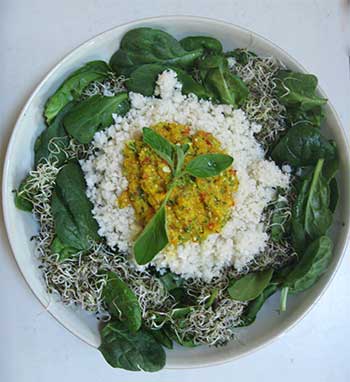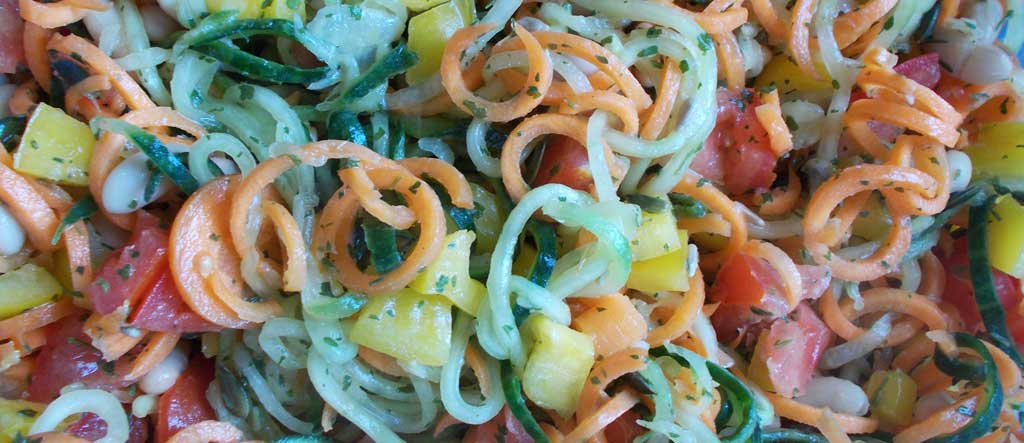Healthy eating: general guidelines
While there is no ‘one-size-fits-all’ diet, there are some general guidelines you can keep in mind to help promote healthy eating habits.
Eating mostly plant foods, such as vegetables, fruits, whole grains and legumes (beans, peas, lentils), while limiting highly refined foods, will help to reduce your intake of saturated or trans fats, excess hidden sugar, salt and unwanted food chemicals. It will also provide adequate fibre to keep your bowels moving.
If you eat meat and fish, opt for organic, local produce whenever you can. Variety in your overall diet helps to ensure a good balance of nutrients, but too much variety in any one meal can lead to over-consumption and indigestion. On any given day, you may eat less nutrients or too much sugar or salt laden foods, but if your diet balances out over the course of the week, then you can maintain a healthy diet.
Try to maintain regular meal-times.
Skipping meals often leads to overeating or snacking on high-calorie foods. If you do eat between meals, pack your own healthy snacks, such as a piece of fruit or a small container of hummus with chopped vegetables, or a small handful of nuts and seeds. Avoid fizzy drinks and sweetened fruit juices, opt for water instead.
Mindful eating
Eating mindfully means paying attention to what and how you are eating. With attention comes awareness. It means sitting down to eat in a relaxed manner, while paying attention to internal cues such as the taste, texture and aroma of your food rather than being distracted by external activities such as the television or radio or just mindlessly delivering food into your mouth. If you eat at the computer or while reading the tendency is to re-load the fork before we have even swallowed the food we are currently chewing. Slowing down and tasting each bite and chewing well before swallowing will not only improve digestion but can leave you feeling more satisfied and fuller for longer.
How to Change? —gradually
If your diet is over-reliant on processed foods, change one thing at a time, such as replacing white (bleached) grains with whole grains. Gradually change one meal at a time, or decide to add more vegetables to your meals or replace sugary snacks with fruit.
- In place of white bread eat only whole grain or sourdough bread.
- Swap a white grain for a whole grain: such as brown rice in place of white or whole grain pasta in place of white pasta.
- Add extra green vegetables to lunch and dinner.
- Replace sweets with fruits.
- Eat a vegetarian dinner at least once a week.
- Replace fizzy drinks with water or fresh juices.
- Sip water throughout the day.
- Create and follow a daily meal plan.
- Make a decision to eat mindfully for one day.
- Eat a small green salad before your main meal of the day.
- Cook from scratch for one day.
- Steam, boil, grill or bake rather than frying your foods.
- Use herbs to season your food instead of extra salt.
- Eat a fruit or vegetable you have never tried before.
- Eat mostly vegetables for one day.
In time, small changes add up to big changes. It is surprising how tastes can change and healthier options can soon become favourite foods. Digestion begins in the mouth with salivation, so it is important to enjoy your food.
